2. EASA’s new executive committee
Ana Ivasiuc, president, Alexandra Oanca, vice-president, David Mills, treasurer, Monica Heintz, secretary, Dominic Bryan, Hege Høyer Leivestad and Roger Sansi.

In January 2023 by EASA members. The outgoing executive committee, whom EASA thanks warmly: Mariya Ivancheva, President, Chandana Mathur, Vice President, Cris Shore, Sharon Macdonald, Fiona Murphy and Chowra Makareni handed over to the newly elected executive committee in Barcelona on 6-7th of February 2023. The new executive committee is formed by Ana Ivasiuc, president, Alexandra Oanca, vice-president, David Mills, treasurer, Monica Heintz, secretary, Dominic Bryan, Hege Høyer Leivestad and Roger Sansi.
Elected members
President
Ana Ivasiuc
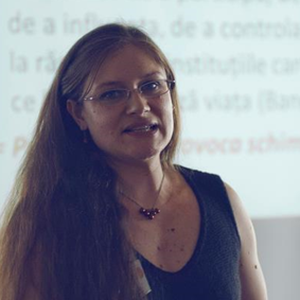 (PrecAnthro /
Maynooth University)
(PrecAnthro /
Maynooth University)
I studied, worked, and carried out both academic and applied research in The Netherlands, France, Romania, Germany, Italy, Ireland. A member of PrecAnthro since its inception (2016), I contributed to the precarity report and supported EASA's consultancy initiative on anti-precarity organizing across Europe. In 2020, I became co-convenor of the Anthropology of Security network (ASN); I advocated for and obtained the full reimbursement of conference expenses for precarious scholars (including from the global South). I am currently co-convening the APeCS network, and in this quality I initiated the setup of a mentorship network for EASA early career anthropologists researching challenging fields in terms of safety and ethics.
Mentorship and concrete support for precarious scholars (including childcare facilities during EASA conferences and the setup of an emergency fund for precarious members), anti-precarity advocacy at structural level, and enhancing anthropology's public relevance in Europe are priorities on my agenda.
Dominic Bryan
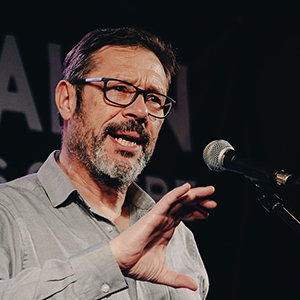 (Queen's
University)
(Queen's
University)
My name is Dominic Bryan and I am Professor in Anthropology at Queen's University Belfast. I am a passionate believer in the utility of anthropology as a tool of critical politics, a space of education and a platform for policy change.
My research interests focus on political rituals, public space, identity and the impact of peace building on the city of Belfast. I have previously worked with the Northern Ireland Human Rights Commission, I am a Fellow of the Senator George J Mitchell Institute for Global Peace, Chair of the charity Diversity Challenges, former co-chair of the Northern Ireland Commission on Flags, Identity, Culture and Tradition and chair of the short time working group on Facilitating Peaceful Assemblies in Scotland.
I was on the organising committee and scientific committee for EASA 2022 in Belfast and will be committed to working with EASA in advancing a public anthropology.
Hege Høyer Leivestad
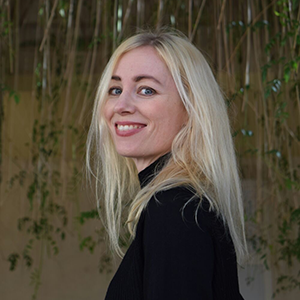 (University of Oslo)
(University of Oslo)
I received my anthropological training in Norway and Sweden. Having worked for many years at Stockholm University, I am now Associate Professor at the Department of Social Anthropology at the University of Oslo. My ongoing research deals with global supply chains and labour, and I'm committed to anthropology's public voice and impact. As an anthropologist working both in and on Europe, I see EASA's role as vital in providing a platform for generating and sharing knowledge that can help us tackle the political, economic and environmental challenges of our times.
If elected to the EASA executive committee, I would work towards new ways of developing anthropology's public voice in collaboration with the organization's many excellent networks. As a committee member I would be dedicated to supporting early-career scholars in different parts of Europe, not least by strengthening EASA's engagement with centre-periphery issues that are related to funding-possibilities, language and publishing.
Alexandra Oancă
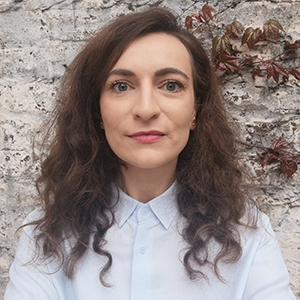 (PrecAnthro / KU
Leuven)
(PrecAnthro / KU
Leuven)
Two years ago, I ran (unsuccessfully) for the EASA election on an agenda that drew attention to the rising mental health crisis in universities. The situation looks even more dire nowadays in our post/pandemic environments.
I am running for the EASA election on a platform prioritising: 1) mental health in academia, and its links with precarity and intersectional inequalities; 2) revalorising teaching within hiring, within EASA, and within the discipline; 3) rethinking anthropology, including its ableist foundations.
As a longstanding member of PrecAnthro that has been deeply affected and troubled by rising mental health challenges in academia, I am committed to strengthening EASA's work on the theme of mental health, and its relations with academic precarity and intersectional inequalities. Instead of tolerating and privatising the rising rates of depression, anxiety, burnout and mental distress experienced by students and staff alike, we need to re/politicise and place it firmly on EASA's agenda.
Roger Sansi Roca
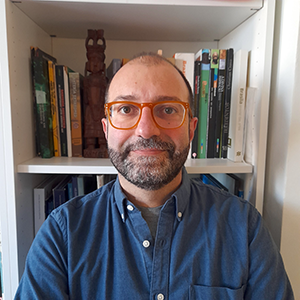 (University of
Barcelona)
(University of
Barcelona)
I am a long-standing member of EASA. I am a member of VANEASA (Visual Anthropology Network) and Co-Founder of ANTART (Art and Anthropology network), which I co-convened for two years. I belong to the local committee that will help organize the next EASA meeting in Barcelona 2024.
I am from Barcelona, but I studied and worked as an anthropologist in different countries: Spain, France, the US, Brazil, and the UK. I have done research in different fields: Religion, History, Art, Mobility, in Europe and the Americas.
If elected, I would like to contribute to three issues in particular: denouncing precarity, both in terms of labour conditions and because of its consequences in the production of knowledge; internationalising EASA further, fostering relations with non-European associations and colleagues, while respecting European national schools; and critically discussing our relationship with other disciplines, beyond the celebration or condemnation of interdisciplinarity.
Nominated members
Monica Heintz, Secretary (2019-2025)
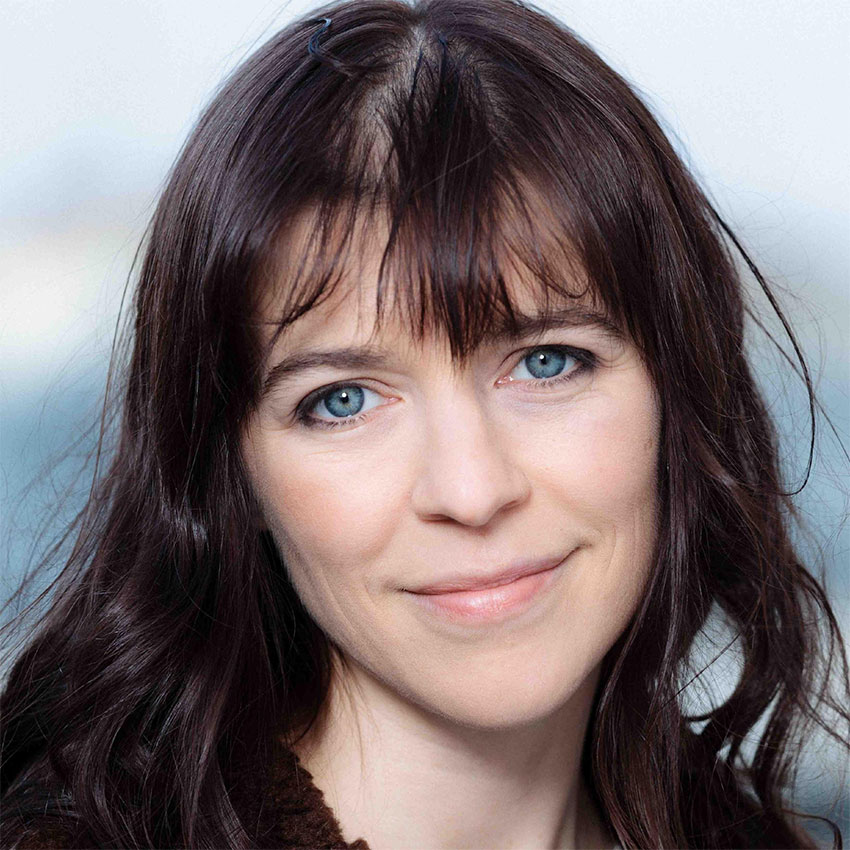
Monica Heintz is Professor at the University of Paris Nanterre and co-director of the Laboratoire d’Ethnologie et de Sociologie Comparative in Nanterre. Her main research focuses on moralities and temporalities and her field sites are located in Eastern Europe and France. In recent years she has been extending her methodological research on morality to include naturalistic approaches. Also, in the frame of several joint projects, she is focusing on ethical questions around cultural representations in museums, performances or documentary films. She has authored the books “Be European, recycle yourself”: changing work ethic in Romania (LIT, 2006), Etica muncii la romanii de azi (Curtea Veche, 2005), The Anthropology of Morality (Routledge, 2021) and edited a number of other books and ethnographic films.
David Mills, Treasurer (2019-2025) and Integrity Committee (since 2021)

David Mills is an Associate Professor in the Department of Education at the University of Oxford and also Director of an ESRC (Economic and Social Research Council) doctoral training partnership between Oxford, Open University and Brunel. His PhD in Anthropology at SOAS drew on fieldwork at both Makerere and a rural Ugandan secondary school, and sparked his ethnographic curiosity about the anthropology of education and the education of anthropologists. He is currently developing a new research project on the politics of doctoral education in Africa.






